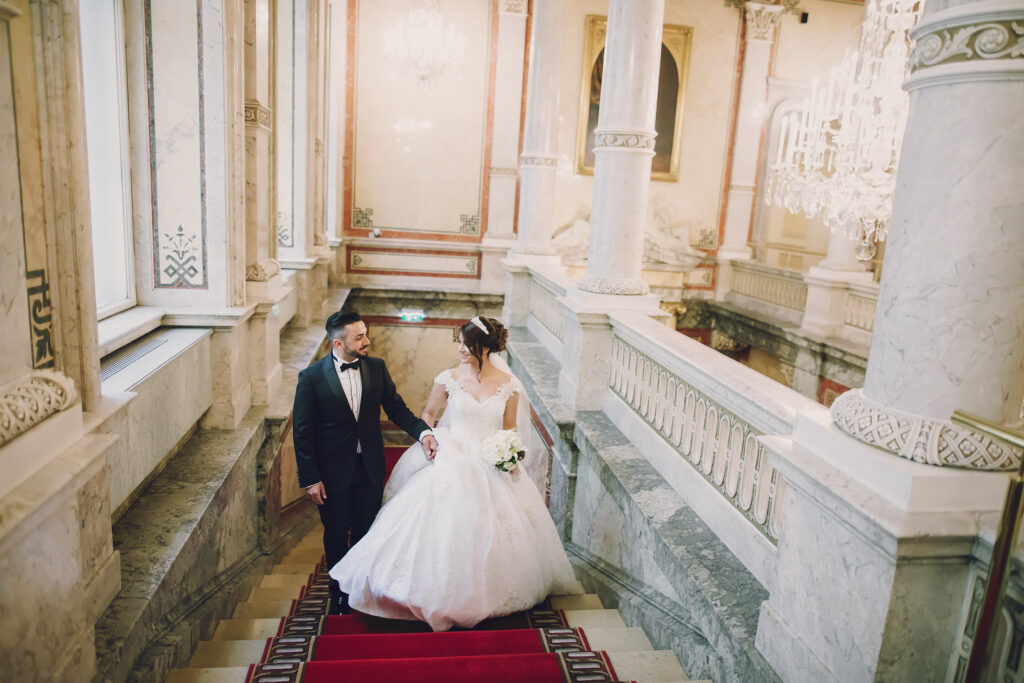
Why 2025 Is the Best Year to Start Your Career in Event Planning?
Want to build your career as a wedding planner

Event planning is no longer just about coordinating parties or managing logistics. It has transformed into a dynamic and lucrative profession, blending creativity, organization, and innovation. As industries embrace a post-pandemic reality, 2025 emerges as a turning point for aspiring event planners. From technological advancements to a growing demand for unforgettable experiences, the landscape has never been more promising.
The Booming Demand for Events in 2025
In-person gatherings are back with a vengeance. After years of restrictions and limitations, people are eager to celebrate milestones, host grand weddings, and organize corporate retreats. Hybrid and virtual events, which gained prominence during the pandemic, are also thriving, offering endless opportunities for event planners to cater to diverse needs. This surge in demand ensures steady work and room for growth in the industry.
Advancements in Event Planning Technology
The technological revolution has made event planning more accessible and efficient than ever. From AI-driven scheduling tools to 3D venue mapping, technology simplifies every aspect of the planning process. Innovations like augmented reality (AR) and virtual reality (VR) are elevating attendee experiences, allowing event planners to design immersive and unforgettable events. Starting in 2025, aspiring professionals can leverage these tools to stand out in a competitive market.
Rise of Specialized Event Niches
The era of generic events is fading. Instead, niche markets such as luxury weddings, sustainable events, and wellness retreats are gaining traction. Micro-weddings, experiential marketing activations, and corporate team-building experiences are also on the rise. These niches provide endless opportunities for new event planners to carve out their expertise and attract high-value clients.
Shifts in Consumer Preferences
Modern clients are no longer satisfied with cookie-cutter events. They crave personalization, meaningful connections, and experiences that align with their values. Sustainability has become a key focus, with eco-friendly décor, zero-waste practices, and green venues becoming essential. Inclusivity is another significant trend, as clients demand events that cater to diverse audiences, creating opportunities for planners to innovate and excel.

Economic Stability and Increased Budgets
As global economies recover, businesses and individuals are allocating larger budgets for events. Corporate clients are investing in brand activations, employee engagement programs, and large-scale conferences, while private clients are sparing no expense on celebrations. This financial stability ensures a thriving market for event planners entering the field in 2025.

Career Flexibility and Entrepreneurial Opportunities
Event planning offers unparalleled flexibility, allowing professionals to choose between freelancing, full-time roles, or entrepreneurship. The rise of remote collaboration has expanded opportunities for planners to work with clients across the globe. Aspiring event planners can establish their own businesses, leveraging their unique styles and approaches to build a strong brand in a dynamic industry.
The Impact of Social Media on Event Planning Careers
Social media is a game-changer for event planners. Platforms like Instagram, Pinterest, and TikTok allow professionals to showcase their work, attract clients, and build a loyal following. Viral events and shareable moments are becoming the norm, and planners who understand how to create Instagram-worthy experiences will thrive in 2025. A strong social media presence is now an essential tool for success.
Supportive Educational Resources and Certifications
In 2025, aspiring event planners have access to a wealth of specialized courses, workshops, and certifications. Programs focusing on sustainability, technology, and niche markets equip professionals with the skills they need to excel. These resources are not just enhancing expertise but also legitimizing event planning as a respected profession.
Networking Opportunities in a Globalized Industry
The event planning industry is more interconnected than ever. International conferences, trade shows, and online forums provide valuable networking opportunities for new planners. Building relationships with vendors, clients, and industry peers is critical for success, and 2025 offers a globalized platform to connect and collaborate.
Work-Life Balance in Event Planning
Contrary to popular belief, event planning can offer a balanced lifestyle. Flexible schedules and remote tools empower planners to control their workload and prioritize personal well-being. Advanced technology reduces time-consuming tasks, allowing planners to focus on creativity and client satisfaction without burning out.
Conclusion
As we step into 2025, the event planning industry is brimming with opportunities. The combination of technological innovation, economic recovery, and shifting consumer preferences creates a fertile ground for aspiring professionals. Whether you’re drawn by the creativity, the flexibility, or the entrepreneurial potential, there’s never been a better time to embark on this exciting career path. Seize the moment and make your mark in the vibrant world of event planning.






















